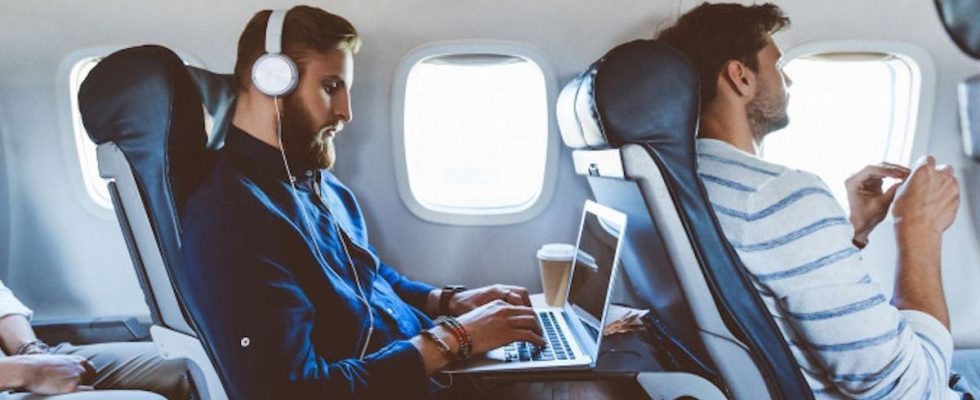Published on
Updated
Reading 3 mins.
If the hydrogen plane is one of the most hopeful paths to imagine a greener air transport, the reduction of food waste generated by meals on board is an additional path on which several airlines are working. The latest initiative concerns British Airways, which has decided to no longer provide the sufficient number of meals on board. We explain to you.
According to Ademe, the Ecological Transition Agency, air transport in France generated 24.2 million tonnes of CO2 in 2019, an increase of 85% compared to 1990, when domestic and international flights are taken into account. While it is estimated that tourism is responsible for 8% of CO2 emissions in the world according to the study that refers to today and published in the scientific journal Nature in 2018, three quarters of this bill is attributable to transport, including 40% by plane compared to 32% for the car and 3% for the train. The challenges as well as the stakes are therefore great for the air sector. Several solutions are currently being considered, such as the hydrogen plane like the Anglo-American manufacturer ZeroAvia, which took off the largest machine of its kind at the start of the year before claiming to launch the first commercial flights from 2025. also has the sustainable fuel track which must represent 1% of the aircraft tank in France, and should increase to 2% in 2025.
Fewer meals on board
However, more and more airlines are trying to reduce their carbon emissions in another way, by tackling a subject that passengers are familiar with in their daily lives: food waste. According to an internal note consulted by professional media such as the View From the Wing Blog, British Airways would thus have decided to no longer provide the exact number of meal trays on board according to the number of passengers in order to reduce the amount of waste. We have all in fact already come across a passenger not far from our seat who prefers to sleep rather than eat… In a context where the global in-flight catering market is expected to grow by 6.5% each year by 2031, estimated a Fact MR study last year, due to the resumption of domestic and international flights, this initiative, which must take the form of a test, logically has a resonance.
A real desire to weigh on its carbon footprint or a desire to reduce costs, the fact remains that this decision concerning long-haul flights raises questions about the possibility that some passengers will be hungry during their trip. According to the website Paddleyourownkanoo.com, the British carrier would be able to adjust the course of this experiment by quickly loading the number of meals required. The lack of food on board a Nassau/London flight last July, which satiated its passengers with KFC chicken wings, would however have no connection with this experiment. British Airways said it was a problem with one of their fridges that led to this option…
But this is not the first time that the issue of food waste has been brought to the table by British Airways. In the early 2010s, the airline shared plans to use biomass as well as food scraps to develop a sustainable fuel.
Other ways to reduce food waste on board
On the side of Emirates and Etihad, we prefer to rely on artificial intelligence to assess the quantity of meals not consumed according to the eating habits of passengers. In Europe, Lufthansa has taken a different path. With the aim of halving the amount of food waste by 2025, the German carrier launched the program called “Onboard Delights Last Minute” last May. This is for passengers to buy sandwiches and fresh salads whose expiry date is logically short. These meals were indeed prepared as part of a last-minute offer to allow passengers to eat healthier.
This anti-waste approach is also an economical trick for travelers who have a meal at their disposal for 3.50 euros, on the Frankfurt/Munich link. Within the German group Lufthansa, Austrian Airlines, SWISS and Eurowings already offer unsold products at reduced prices. According to the company, 80,000 foods were thus consumed when they could have ended up in the trash.
